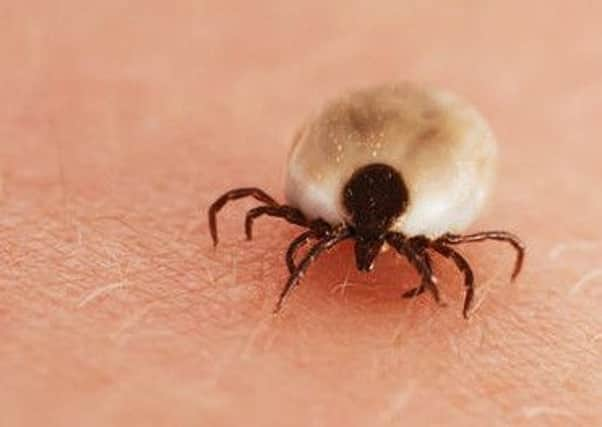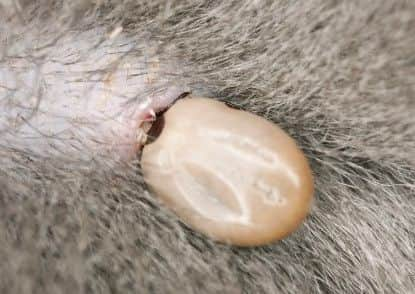Warning! Blood suckers are feeding earlier on dogs and people


Tick bites can transmit serious infections, such as Lyme disease, a serious and debilitating illness that can cause long term health problems in dogs and people.
Now, vets across Northamptonshire are teaming up with the Heath & Reach Vet Surgery by joining naturalist and TV presenter Chris Packham and the University of Bristol in the Big Tick Project.
Advertisement
Hide AdAdvertisement
Hide AdThe new nationwide initiative runs from spring through to autumn, tracking the rise of the tick population in the UK and finding out how many carry disease.


Dog owners can take their pets to Spinney Lodge Veterinary Hospital on Kettering Road in Northampton, Wooton Fields Vet Surgery at Tudor Court Northampton, Easipetcare on Mariners Way in Kettering, New Lodge Veterinary Centre on Red Lodge Road in Oundle, Beech House Veterinary Surgery on Watling Street in Towcester or Croft Veterinary Centre on Banbury Road in Brackley for a tick check and advice about innovations in effective tick control.
Any ticks found on dogs will be collected and sent to Bristol University laboratories to help advance the knowledge of tick-borne disease, benefiting both veterinary and human medicine.
Chris Packham feels the challenge of keeping dogs and people tick-free has never been greater,
Advertisement
Hide AdAdvertisement
Hide AdHe said: “Research highlighted by the Big Tick Project experts at Bristol University suggests that ticks are a growing problem, especially in areas such as urban parkland, woodland or open country.


“While I find both ticks and fleas interesting creatures, I don’t want them on my dogs, in my house, or on me.
“I want the best advice and treatment available and I know I can get this by talking to my vet.”
By taking part, Heath & Reach Vet Surgery will help the level of risk to dogs and people in the county to be identified, compared to the national average.
Advertisement
Hide AdAdvertisement
Hide AdTicks are hard to spot when small but can transmit infections as they feed off the blood of their host. Dog owners often see ticks when they have increased in size as a result of their blood meal but by then the damage may have been done.
LNew advances and treatment innovation means that there are a number of ways that vets can control ticks, including the use of spot-ons (typically applied every four weeks), sprays, collars and oral chewable formulations which can last up to 12 weeks.
That means there should be an easy and practical solution for every owner who wants to help protect their dog against ticks.
Dog owners wanting to take part in the Big Tick Project with a tick check for their dog(s) or to find out more about the risks from tick bites can visit www.bigtickproject.co.uk or contact Heath & Reach Vet Surgery o n 01525 237444 for more details.